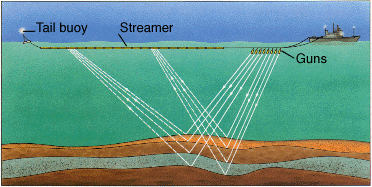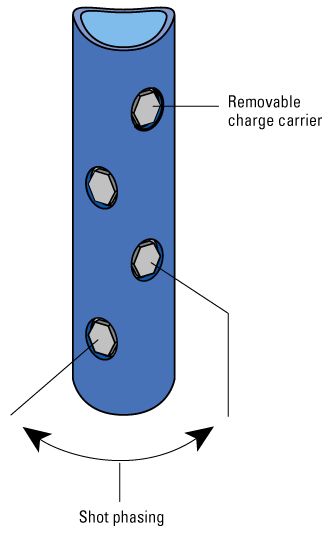1. n. [Geophysics]
Abbreviation for air gun or water gun. An air gun is a source of seismic energy used in acquisition of marine seismic data. This gun releases highly compressed air into water. Air guns are also used in water-filled pits on land as an energy source during acquisition of vertical seismic profiles. A water gun is a source of energy for acquisition of marine seismic data that shoots water from a chamber in the tool into a larger body of water, creating cavitation. The cavity is a vacuum and implodes without creating secondary bubbles. This provides a short time signature and higher resolution than an air-gun source.
See related terms: acquisition, air gun, bubble effect, cavitation, impulsive seismic data, resolution, source, vertical seismic profile, water gun

2. n. [Perforating]
A device used to perforate oil and gas wells in preparation for production. Containing several shaped explosive charges, perforating guns are available in a range of sizes and configurations. The diameter of the gun used is typically determined by the presence of wellbore restrictions or limitations imposed by the surface equipment.
See related terms: casing gun, expendable gun, high-shot density gun
